Our impact
2024 was a year of transition for everyone at Nadara: with the new brand and the business strategy under development, the first step on sustainability was to build the foundations of our sustainability strategy and define the direction of travel, aligned with business priorities and compliance requirements.
Powered by our purpose, we’re working towards improving energy security in our countries of operation, contributing to safe, reliable and affordable energy globally.
Our first Sustainability Report as Nadara is out!
What sustainability and ESG mean to us
For us, sustainability means creating value for all our stakeholders through the generation of renewable energy, minimising our impact on the environment and leaving society in a better place.
ESG (Environmental, Social and Governance) is about assessing, monitoring, and reporting our sustainability performance through ESG frameworks and metrics to comply with regulatory obligations, meet stakeholders’ expectations and communicate our impact through voluntary and mandatory disclosures.
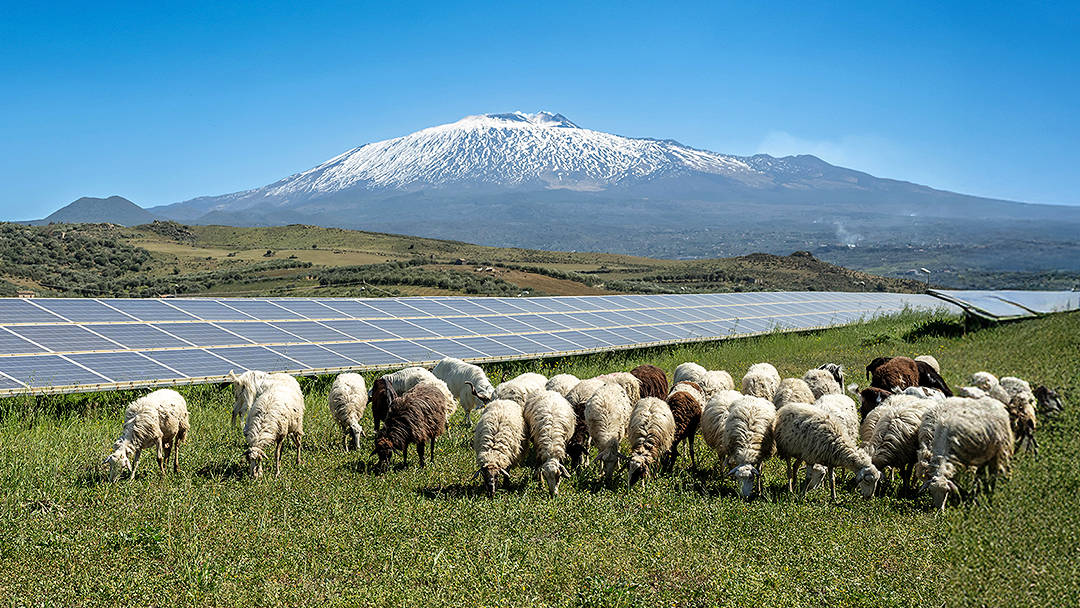
Connected to our core business
Sustainability is built into the purpose of our organisation:
Together, with nature, we power lifetimes to come.
It is not separate from our business strategy – it is essential to delivering our strategic objectives, meet our stakeholders’ needs (including our shareholder’s mandate) and support energy security.
Renewable energy, our core business, is local, cheap and decentralised. It provides a secure and affordable source of power supply that supports economic growth, energy security and independence. Therefore, our approach to sustainability will have the highest impact by facilitating the long-term success of our business, ensuring that we can continue to generate renewable energy over time and create balanced, sustained and inclusive value.
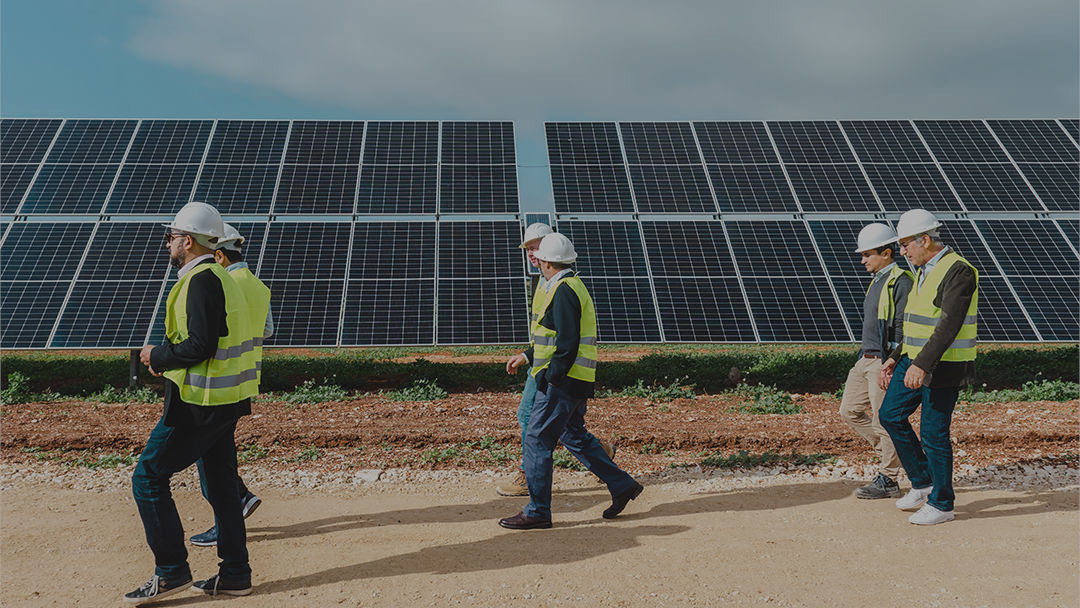
Our approach to sustainability
Our approach to sustainability is built on two major commitments: to the environment (‘minimising our impact on the environment’) on one side, and to society (‘leaving society in a better place’) on the other.
Under each commitment, we are focusing on the topics that matter to us and our stakeholders the most: Climate, Circularity and Nature from an environmental perspective, and Our Communities, Our People and Value Chain from a social perspective. But we can’t deliver this without a strong foundation of internal governance and solid principles of sustainable procurement.
Our Sustainability Impact Framework is the conceptual framework that brings our definition of sustainability to life, by linking all the different elements of our approach to sustainability to our business strategy.
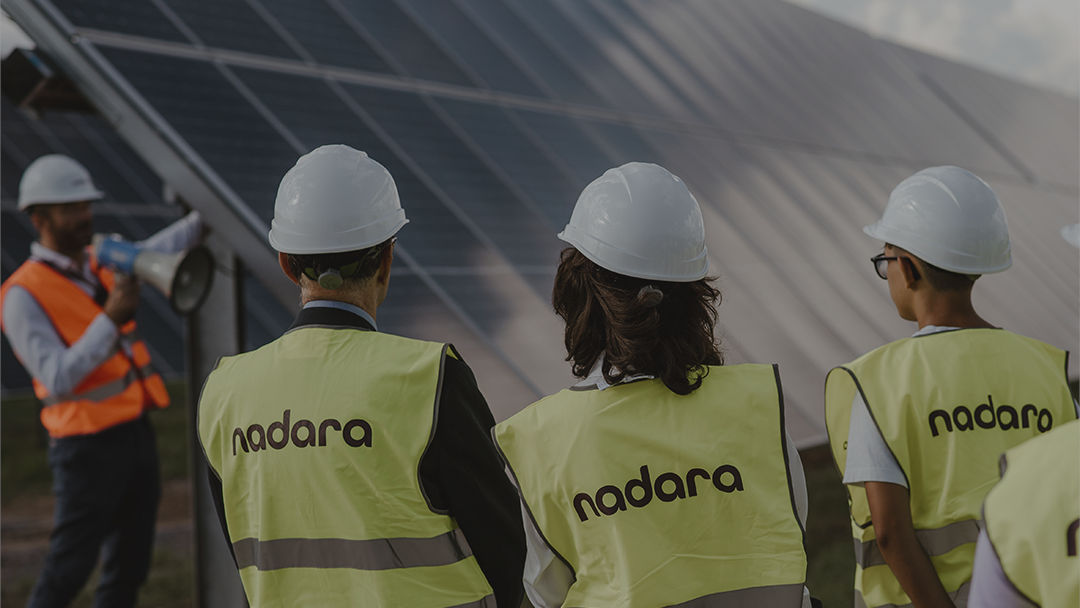
Our impact in numbers
At the beginning of 2024, Renantis and Ventient Energy combined to become Nadara. Throughout 2023 we were two separate companies, which is why we currently have two scores for the GRESB assessment, an Environmental, Social and Governance (ESG) benchmark that measures the ESG performance of companies. Our latest GRESB score is 98 out of 100 and a five-star rating for both Renantis and Ventient Energy. Nadara’s first GRESB rating as a combined organisation will be for the year 2024, released in 2025.

Community Engagement Stats in 2024
94%
of plants* with significant community engagement programmes** in core countries***
258
number of communities where company operates
594
community projects supported by Community Benefit Funds
* Plants: operational, consented and under construction.
** Engagement programmes include at least one of the following: Community Benefit Funds, cooperative or BenComs schemes, community turbine scheme, lending crowdfunding, electricity discount scheme, Call for Projects and ESG Fund, Contractors Open Days, student support schemes.
*** France, Italy, Portugal, Spain and the UK.
Our 2024 Carbon Footprint
| Nadara Carbon Footprint | tCO₂eq |
|---|---|
| Scope 1 | 62,998 |
| Scope 2 (Location based) | 4,535 |
| Scope 3 | 140,533 |
| Total Carbon Footprint | 208,066 |
Avoided Emissions: 1,385,758 (tCO₂eq)
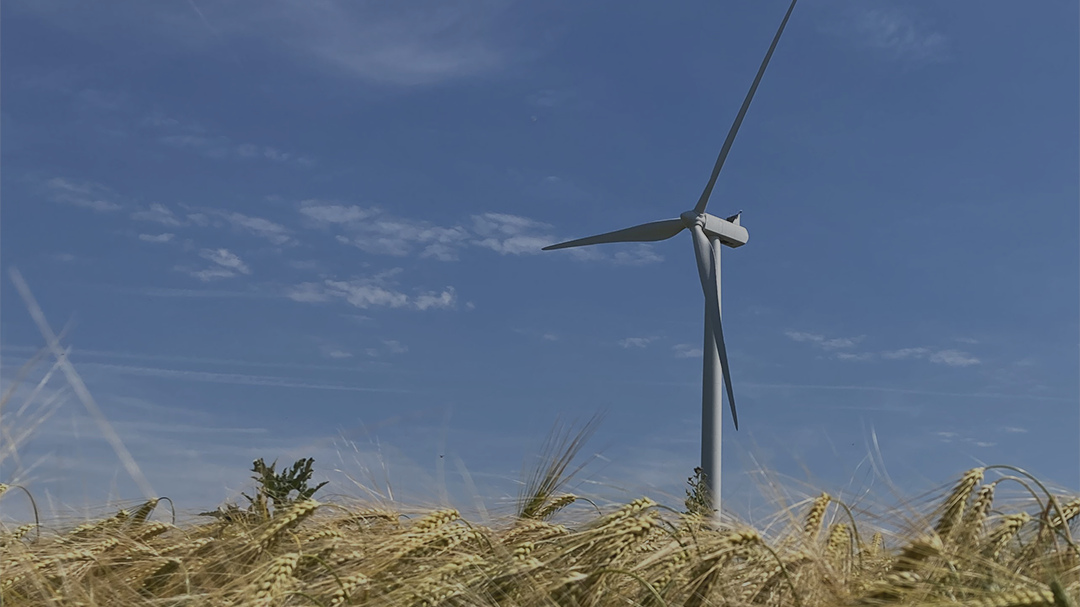
Our People
Diversity, Equity, and Inclusion (DEI)
991 colleagues as of December 2024, all empowered to take action and equipped to make our greatest impact yet.
| Gender | Percent of Employees |
|---|---|
| Women | 31% |
| Men | 69% |
| Age group | Percent of Employees |
|---|---|
| Under 30 years old | 16% |
| Between 30 and 50 years old | 67% |
| Over 50 years old | 17% |
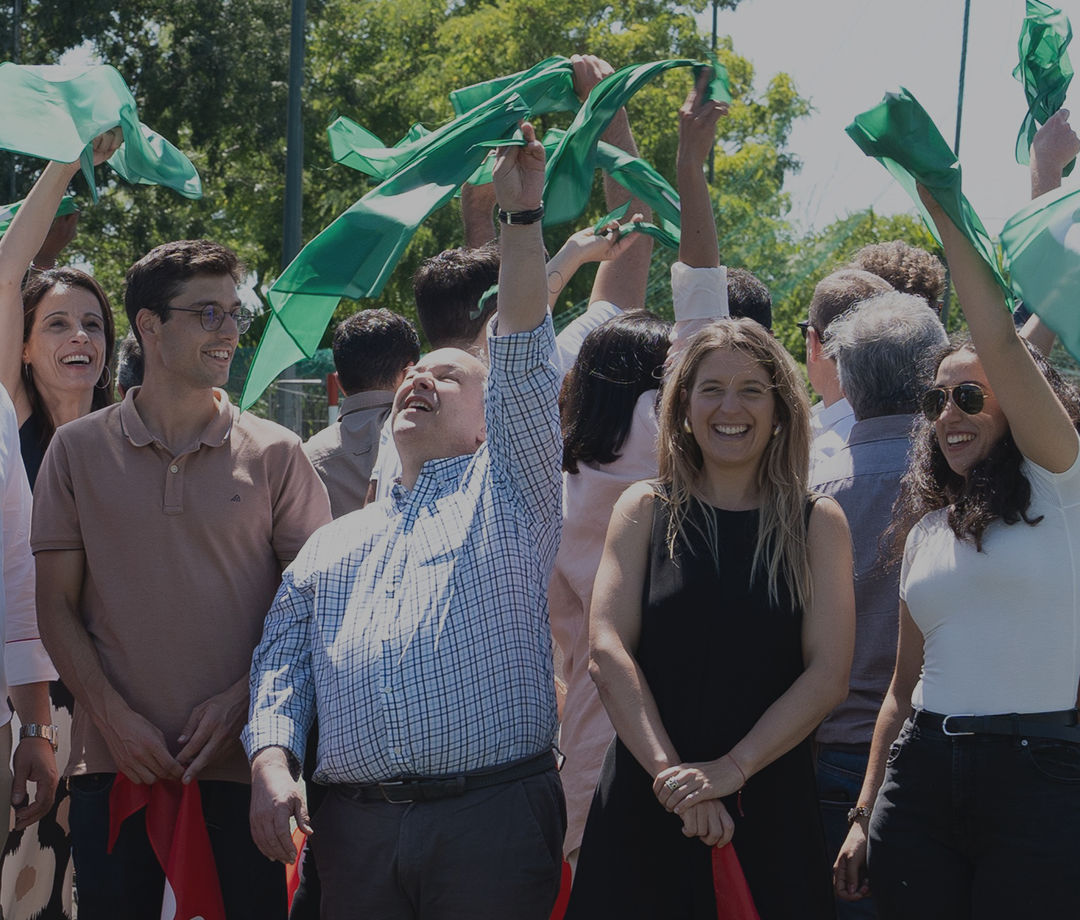
Learning and development
13,472
total hours of training undertaken by employees
98%
undertook professional training*
95%
undertook an ESG related training**
* Professional training means training which is designed to help employees develop soft/hard skills and knowledge they need to succeed in their job position.
** Examples of courses that count as ESG-related training include those related to Compliance, Sustainability, Environmental, Health and Safety, etc.
Our Governance System
Gender ratio in Nadara Board of Directors
| Gender | Percent of Board of Directors |
|---|---|
| Women | 44% |
| Men | 56% |
78% of Board of Directors are independent
Training on governance topics
66% of our employees trained on cybersecurity
66% of our employees trained on anti-corruption and antibribery policies and procedures
Our Communities
Renewable energy is often discussed in terms of technology, permitting processes, and carbon emission reduction.
But at its core, it’s profoundly about people.
At Nadara, community engagement is fundamental. By engaging early with the communities that will host our plants, we bring them on the journey with us in the development of a new project. And once the project is built, our experience tells us that local residents are more supportive of extension and repowering plans if we maintain meaningful engagement throughout the plant operation.
In 2024, we focused on understanding how to best evolve Nadara’s Community Value Proposition, taking key lessons learned from our past experience, and ensuring communities remain at the centre of our strategy as Nadara.
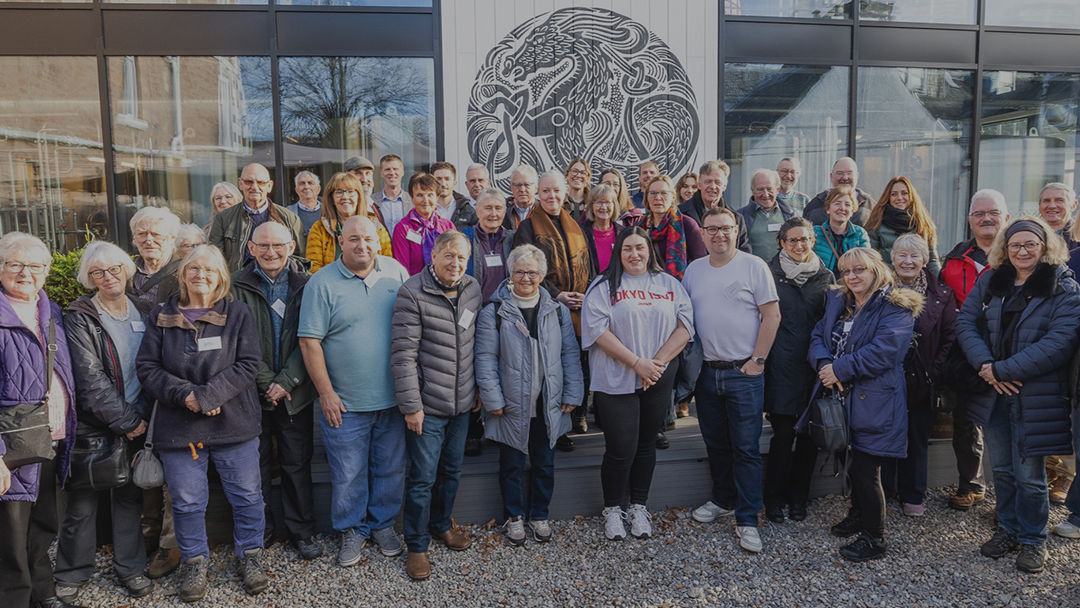
We promote the development of the communities hosting our plants by supporting projects with local impact and making use of the local supply chain.
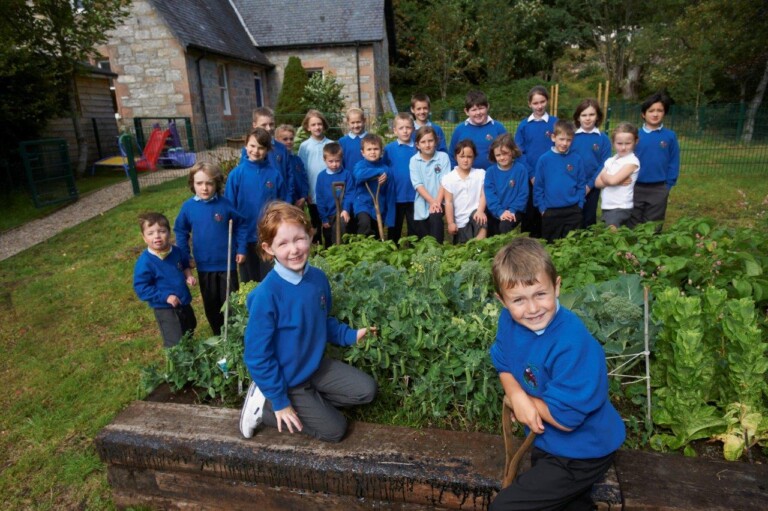
We provide the opportunity to invest in some of our plants through shared ownership schemes or lending crowdfunding campaigns depending on local circumstances.

We support the development of professional skills, competence and knowledge sharing in relation to renewable energy.
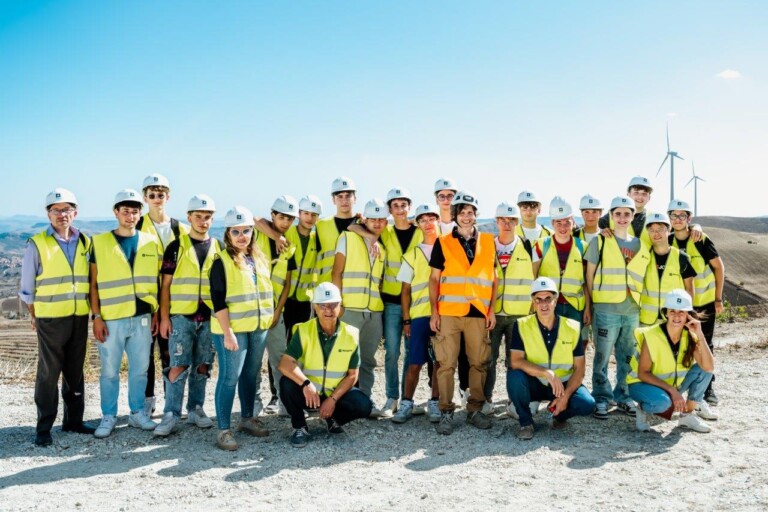
Climate and Environment
Environmental sustainability for us means achieving our company goals whilst minimising our impact on the environment.
As part of this commitment, we strive to exist in harmony with the world around us, utilising natural wind and solar resources to create renewable energy whilst doing everything we can to reduce our operational impact.
In 2024 we engaged with key stakeholders both internally and externally to determine what environmental topics matter the most to our business. This process allowed us to identify three Key Focus Areas for Nadara: Climate, Circularity, and Nature. These three topics describe where our business can provide the most valuable impact and form the environmental pillars of our Sustainability Impact Framework.
Across each of our three environmental Key Focus Areas, the first step was establishing a reliable data baseline. This was crucial to enable us to effectively measure, manage and reduce our impact and to ensure we can make data-driven sustainability decisions. Establishing this baseline involved consolidating data from our former companies, Renantis and Ventient Energy, into one combined Nadara database. This provided the platform for us to calculate our first combined carbon footprint as well as establish the appropriate data collection processes, procedures and systems required to gain visibility of our combined circularity and nature-related impact.
Our impact over the years
Policies and Certificates
- Health and Safety, Quality and Environment Policy*
- ISO-45001 Certificate*
- ISO-14001 Certificate*
- NetZero Policy*
- Diversity, Equity, Inclusion (DEI) & Inclusive Leadership*
*The following documents are pre-existing policies, applicable to either Renantis or Ventient Energy. Joint policies for Nadara are being developed as we fully integrate the two businesses. These documents will be replaced as soon as the joint policies for Nadara are approved.